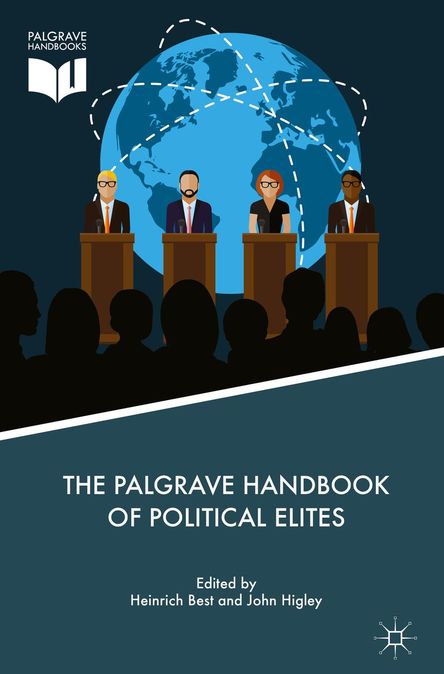The call for panels for next year’s IPSA World Congress in Buenos Aires is now open !
12Jul 2021
New board elections
19:55 - By Régis Dandoy
Since July 2021, three new board members have been elected ! Discover their names and positions here
06Feb 2020
Call for Papers - Innsbruck ECPR General Conference
16:34 - By Régis Dandoy
The ECPR Standing Group on Elites and Political Leadership is organizing a section on "Angels and Demons: Elites and Leaders in Context and Comparison" for the next ECPR General Conference and is looking for papers here.
Deadline for applications is 19 February 2020.
04Jun 2019
Call for panels - IPSA World Congress - Lisbon 2020
15:09 - By Régis Dandoy
The call for panels for next year’s IPSA World Congress in Lisbon is now open !
02Feb 2019
Call for Papers - Wroclaw ECPR General Conference
15:27 - By Régis Dandoy
The Standing Group on Elites and Political Leadership is putting together a section entitled "A Brave New World? Elites and Challenges to Leadership" at the ECPR General Conference in Wroclaw, 4-7 September 2019.
23Jan 2019
RC02 is on Twitter !
09:09 - By Régis Dandoy
The RC02 is now on Twitter ! Do not hesitate to follow us on @IPSA_Elites
19Dec 2018
New board members !
15:35 - By Régis Dandoy
Since July 2021, new board members have been elected ! Discover there names and positions here
02Feb 2018
The Palgrave Handbook of Political Elites
23:00 - By Ursula Hoffmann-Lange
The handbook was published in the fall of 2017 and is a collaborative work of current and former officers of RC02. Many of our active members have actively contributed to the book. We gratefully acknowledge the help of Verona Christmas-Best and the Palgrave team in preparing the final manuscript and the production of the book.
Palgrave_Handbook_of_Political_Elites_ToC.pdf

23Mar 2017
Call for Papers
12:13 - By Ursula Hoffmann-Lange
Invitation to submit an article for the yearbook Comparative Social Research
The yearbook Comparative Social Research invites the submission of papers on the changing significance of elites, and tensions between elites and population groups, in a comparative perspective. The current rise of populism seem to shatter established relationships between elites and the population in both Western and non-Western parts of the world, and may represent a challenge to democracy. Reasons for these changes need to be scrutinized and more thoroughly understood. Increased tensions between people and elite groups may vary from one society to another, reflecting differences in national culture, organizational and political structure, as well as institutions producing social integration. Which groups are perceived as elites, and which groups hold power, may vary between countries and over time. Recent political developments, as well as research, suggest that the role of cultural and symbolic dimensions in the shaping of elite status is significant.
Contributions may take their point of departure in a diversity of disciplines (sociology, political science, history, or other social sciences), and in different conceptions of elites or theoretical strands, such as institutional patterns, power elites and elite integration, symbolic boundary work, or elite compromises and democracy.
Deadline: Scholars are invited to submit summaries of articles before September 15, 2017, and finished articles before January 10, 2018.
More information: LR_CSR_call_for_papers_elites.docx
03Jun 2016
The Palgrave Handbook of Political Elites
21:57 - By Ursula Hoffmann-Lange
The publication of a Handbook of Political Elites has been adopted as a major assignment of the Research Committee during the past four years. Steered by a group of editors which is made up mainly by present and former officers of our Committee, the Palgrave Handbook of Political Elites has now advanced to its final stage. With about 40 chapters written by eminent experts of the field (who were predominantly recruited from the membership of the RC02), it will cover the main theoretical, methodological and empirical aspects of scholarly inquiry into political elites, including their regional variation and internal differentiation. We expect that the Handbook of Political Elites will come forth in spring 2017.
Heinrich Best and John Higley (principal editors)
Palgrave_Handbook_of_Political_Elites_Outline.pdf
